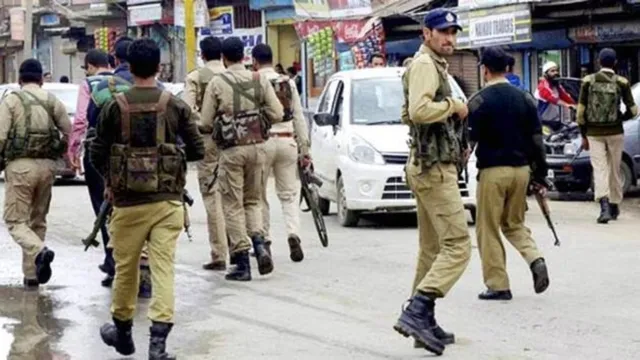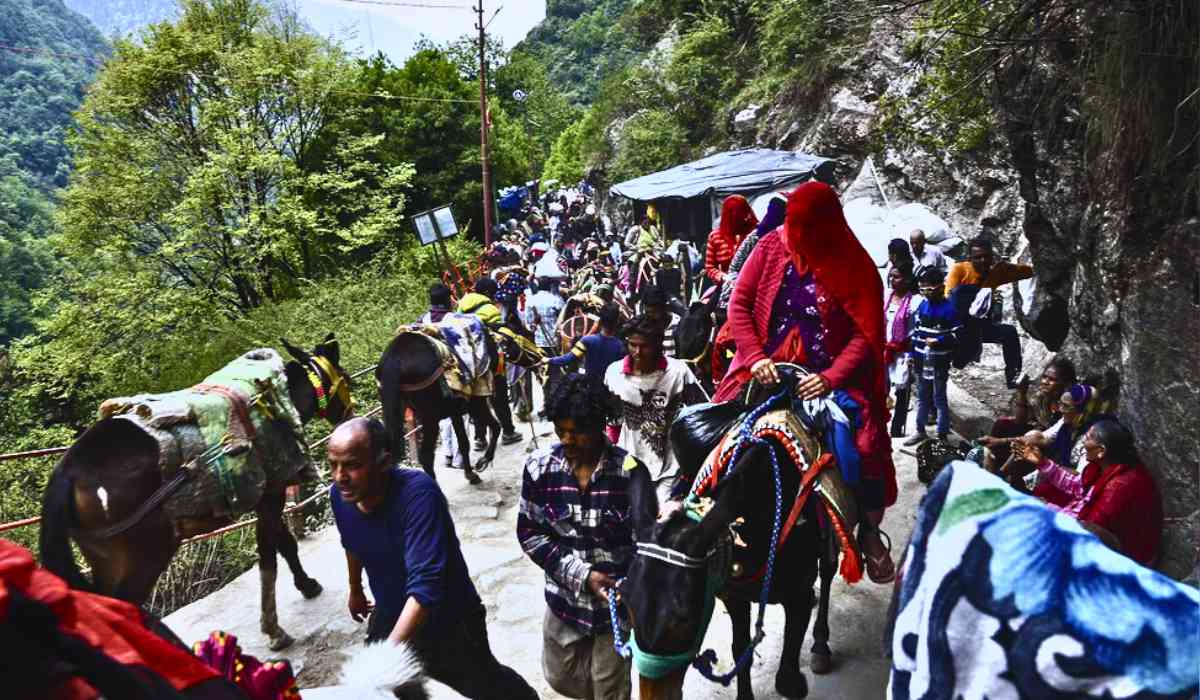In a recent security operation on the Vaishno Devi pilgrimage route in Jammu and Kashmir, two men were arrested for impersonating authorized pony service providers using fake documents. This incident highlights ongoing challenges in maintaining security and authenticity of services on one of India’s most visited religious routes.
What Happened?

During routine police patrolling near Shri Geeta Mata Mandir, officials intercepted a man who identified himself as Puran Singh. However, upon verification, police discovered his real identity was Manir Hussain. He was found using someone else’s authorized pony service card to operate illegally on the shrine route. An FIR was registered against him at Katra Police Station under relevant legal provisions.
In a separate incident near Ban Ganga bridge, police apprehended Sahil Khan from Kotli in Jammu district. He was found operating a pony service without any valid license or authorization. Sahil Khan admitted to lacking official permission, leading to another FIR registration.
Why Is This Important?
Vaishno Devi is a highly revered shrine, attracting tens of thousands of pilgrims daily, with numbers rising to 45,000-50,000 during festivals like Navratri. To assist pilgrims, around 11,000 ponywallas, palanquin owners, and pithuwallas are officially registered and verified annually by the Shrine Board and police authorities. The verification process includes thorough background checks by the CID to ensure the credibility of service providers.
Impersonation and unauthorized operations not only violate legal norms but also pose safety risks to pilgrims. Fake service providers may not meet safety standards, and their presence undermines the trust pilgrims place in authorized services. With the recent terror attack in Pahalgam, which resulted in the tragic loss of 26 lives, authorities have intensified security measures across Jammu and Kashmir, including the Vaishno Devi route.
Security Measures and Public Role

Following these arrests, police have emphasized continuing surveillance, random checks, and verification drives to prevent unauthorized activities on the shrine route. The Shrine Board has installed CCTV cameras at vantage points along the track and at the Bhawan to enhance security. The police, along with CRPF and shrine staff, work together to regulate the pilgrimage and ensure safety.
Authorities urge all pony service providers to carry valid authorization cards at all times. They also call upon the public and pilgrims to report any suspicious behavior or unauthorized service providers to the nearest police personnel. This collaborative approach aims to maintain a secure and trustworthy environment for all visitors.
While the arrests demonstrate effective law enforcement, they also reflect the complexities of managing a large-scale pilgrimage with thousands of service providers. The demand for pony services is high, and ensuring every operator is properly licensed requires constant vigilance. The authorities’ proactive steps to verify credentials and crack down on impersonators are crucial to safeguarding pilgrims’ welfare.
At the same time, the incident serves as a reminder for pilgrims to remain cautious and verify the authenticity of service providers. Being aware and reporting irregularities can help prevent exploitation and enhance overall security.
With inputs from agencies
Image Source: Multiple agencies
© Copyright 2025. All Rights Reserved Powered by Vygr Media.




















